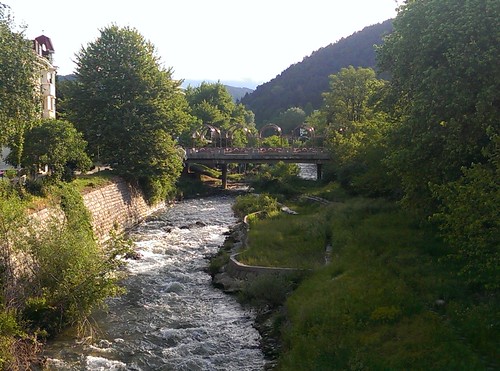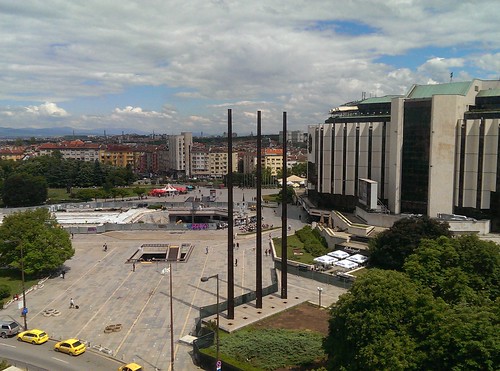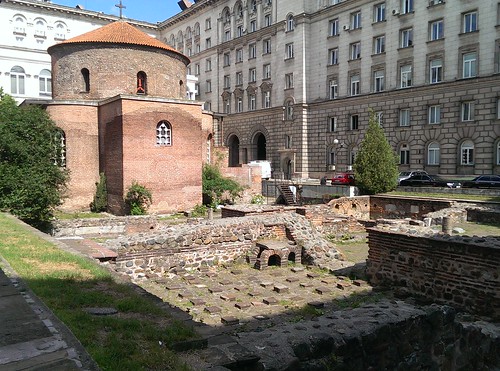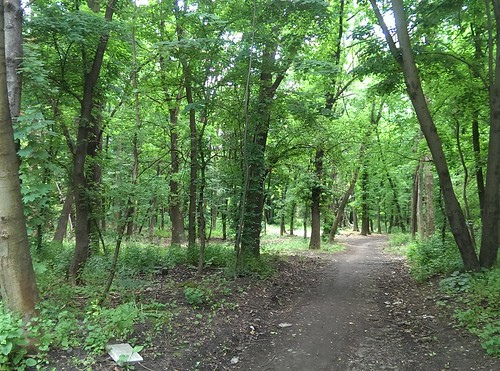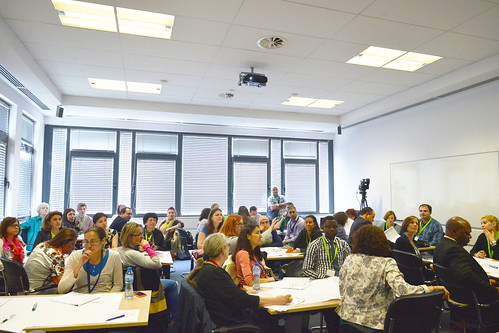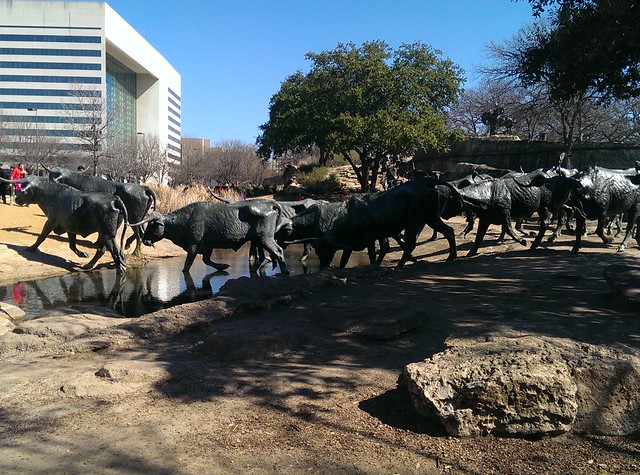On the way to the Pack Forest for the ACRL WA/OR joint conference, Uta and I visited a few academic libraries — slide show will be forth coming. But this post is about my first visit to the amazing retreat center, in the woods at the Center for Sustainable Forestry at Pack Forest.
There were about 90+ people in attendance, from a variety of academic libraries including research libraries and community colleges, for this 2 day event. OSULP had about 7 of us in attendance (including our ACRL OR President Uta!). Susan Barnes Whyte was the keynote to open up the day “Your ACRL: An Update from the Board” so she mainly talked about ACRL nationally – its mission, goals, demographics in the association etc. There was some discussion on ACRL nationally, should it be a part of ALA or its own entity (I feel strongly it should stay in ALA as we can learn from each other regardless of what type of library we are working in currently and we NEED to work together not in silos!) . Another short discussion was on if ACRL is supporting/recruiting more paraprofessionals and offer more continuing ed leading to certification (not much time to discuss and this could be a great small group discussion at another time). An interesting note in the national ACRL membership trends shows membership drop off after 5 years is this perhaps until they get tenured? What can ACRL do to keep people involved regardless of tenure? Susan also noted that the ACRL Plan for Excellence might be adding a 4th goal relating to how libraries effectively navigate changing landscapes. She mentioned some upcoming library themes (external pressures) ACRL was researching:
- credentialing/badges – might relate to non MLSers
- curriculum/assessment
- changing roles of librarians
- future roles of conferences?
- academic library as publisher
- other HE organization
- budgets!!!
- professional ethics and large corporations and privacy
———————
Session 1: BLURRING THE LINES: Encouraging Undergraduate Student Success Through Partnerships (U of W librarians)
Key themes:
- odegaard library — focuses on UG/student learning focused
- partnerships – for diverse viewpoints + collaboration –but be prepared to collaborate DEEPLY (more than colocation); sharing cultures, do not underestimate culture clashed, rethink what you want to assess together.
- holistic view of the student – student support must transcend divisions
- A need to support the “Hidden Curriculum” – understanding scholarship and inquiry which use to be the expectation by college – and includes subject content, college prep, working with new populations (1st generation, transfers), no GED curriculum — so, how to transfer skills across courses?
 They created the OWRC (Odegaard writing and research center) 70+ tutors, 5 LIS students, 4 librarian tutors. both writing and research tutors collaborate: key: “writing is where research issues come out, librarians need to be in the midst of that process” … metalanguage for processes of inquiry – threshold concepts, joint writing and research librarians, recursive process employing reading, writing and discussion to create knowledge.
They created the OWRC (Odegaard writing and research center) 70+ tutors, 5 LIS students, 4 librarian tutors. both writing and research tutors collaborate: key: “writing is where research issues come out, librarians need to be in the midst of that process” … metalanguage for processes of inquiry – threshold concepts, joint writing and research librarians, recursive process employing reading, writing and discussion to create knowledge.
Other collaborative programming ideas from UW:
- Health and wellness programming: peer health educators in the library
- Music Programming: 1 hour pop up performances such as a campus String Quartet. “take a study session with a soundtrack” Quiet areas for students too. Assessment show it calmed students and made them feel good while studying; Also it connected them to the space and was a shared experience.
- The gallup purdue index 2014 states “feeling supported and having deep leaning experiences mean everything when it comes to long term outcome for college graduates”
—————-
Session 2: Let Your Love Open the Door To – Student Development Theories (OSU Librarians!)
Their presentation will be better than me summarizing… and since they are local, just go ask them about it! https://drive.google.com/file/d/0B_xclEG6DYt7Rng1SVgyOVJoOEE/view
—————–
LIGHTENING ROUNDS
1 – Emma at Pierce College discussed opening doors to work with adjunct faculty in teaching and working at the ref desk. Spend time on boarding, allowing them time to share ref desk questions and project work, give them a chance at co-teaching, integrated reflective practices, and host an in-service. Adjuncts need to be part of and understand the culture of the library, they need time to debrief on ref questions etc. See more: goo.gl/1FimYU
2 – Beyond Academia “what happens after I graduate?” AND #3 – University of Western States in PDX both spoke about similar ideas: why not teach a workshop/class for those getting ready to graduate. They will not have access to library resources so show them Open Access resources, ILL options, where is your local public library, information through their prof organizations, etc . One library now offers a class the last quarter of their study “so you are graduating now what?” Students are surprised they can’t access literature after graduating! It’s about managing vs meeting expectations. Offer them options to help guide them once they graduate. She actually shows them a license agreement contract that says “no alumni” (so they know we arent just being mean 🙂 She also shows how to set up alerts for TOCs and RSS/Feedly and of course open source and government stuff.
DAY 2
Library as a Lightning (talk) rod for Cross Campus Collaboration (Poppy, UW Tacoma)
- determine the gaps saw in grad students
- created TAC talks (as in Tacoma – aka “TED talks”
- like Scholars Studio at UW Seattle
- one topic 10 lightening talk events, 20 slides, 15 sec each, timed
- gives grad students a chance to practice presenting
- why the library? already the connecting to research, neutral territory, interdisciplinary
- refreshments and reception afterwards
- materials added to the IR
- then integrated a peer review process as well
Reference in your Pjs (Nano Burling WSL)
virtual reference – after hours references study what was asked during the night. found they asked a lot of high level research questions
Bringing the stacks to Buzzfeed (Emily, UW)
Taught 5 sessions of a course that was in both jewish & Spanish departments that was everything from stacks to spec collections. Cool idea – had them do a browsing activity instead of scavenge hunt – send to a general section in the library to review books related to their specific area. She also asked them : where are you actually doing your reading (buzzfeed, blog, facebook, etc). She let them posted their final work on Blogs or Buzzfeed.
Library as Open Education Leader Grant Summary (CC librarians)
LSTA grant for CC in WA – a need to put librarians within the Open Ed process; a need to create open education advocacy plans by librarians . These librarians created a course to teach how to talk to people and create your advocacy plan (beyond what is OER). They used Press Books for it. Suggested best practices: envio scan and find your support networks;






